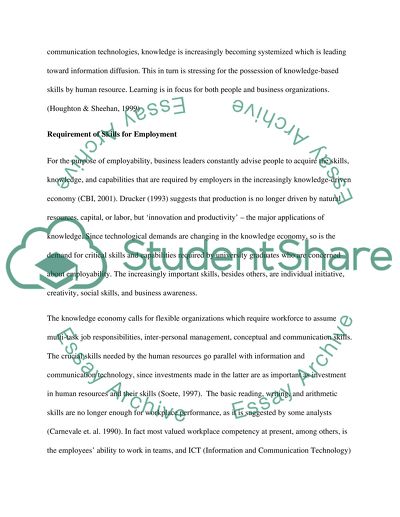Cite this document
(The Nature of Knowledge Economy Case Study Example | Topics and Well Written Essays - 1750 words, n.d.)
The Nature of Knowledge Economy Case Study Example | Topics and Well Written Essays - 1750 words. Retrieved from https://studentshare.org/macro-microeconomics/1561350-employability-in-the-knowledge-economy
The Nature of Knowledge Economy Case Study Example | Topics and Well Written Essays - 1750 words. Retrieved from https://studentshare.org/macro-microeconomics/1561350-employability-in-the-knowledge-economy
(The Nature of Knowledge Economy Case Study Example | Topics and Well Written Essays - 1750 Words)
The Nature of Knowledge Economy Case Study Example | Topics and Well Written Essays - 1750 Words. https://studentshare.org/macro-microeconomics/1561350-employability-in-the-knowledge-economy.
The Nature of Knowledge Economy Case Study Example | Topics and Well Written Essays - 1750 Words. https://studentshare.org/macro-microeconomics/1561350-employability-in-the-knowledge-economy.
“The Nature of Knowledge Economy Case Study Example | Topics and Well Written Essays - 1750 Words”. https://studentshare.org/macro-microeconomics/1561350-employability-in-the-knowledge-economy.


